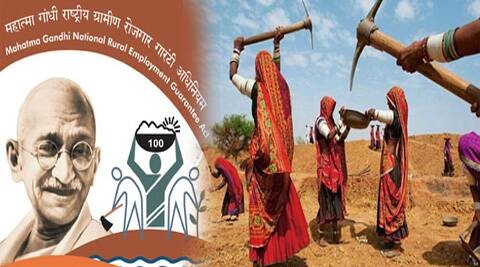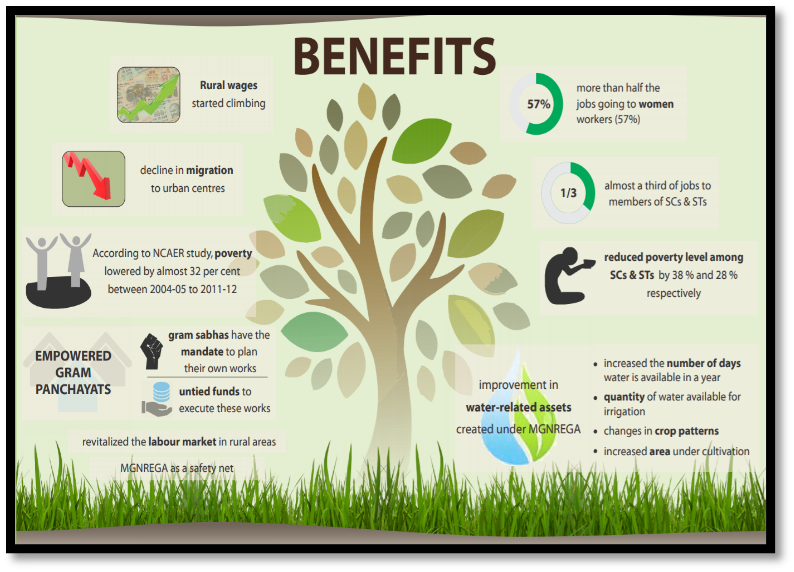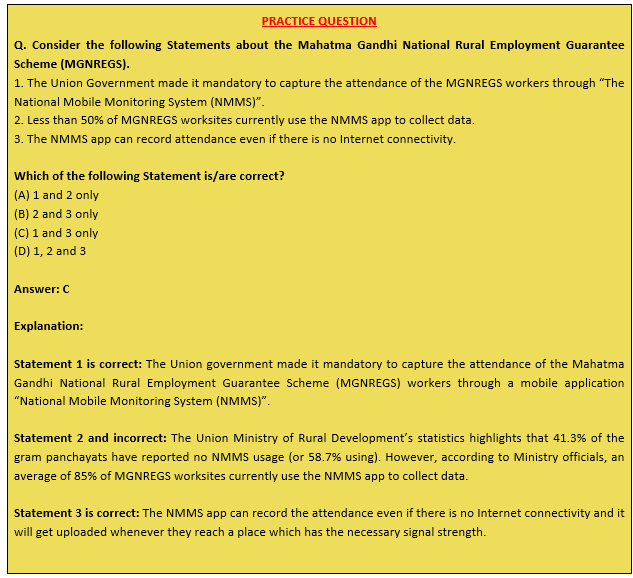Description

Copyright infringement not intended
Context: The Union Ministry of Rural Development’s data shows that 41.3% of the gram panchayats have reported no National Mobile Monitoring System (NMMS) usage.
Details
- Recently the government made it mandatory to capture the attendance of the Mahatma Gandhi National Rural Employment Guarantee Scheme (MGNREGS) workers through a mobile application “National Mobile Monitoring System (NMMS)”.
- The Union Ministry of Rural Development’s statistics highlights that 41.3% of the gram panchayats have reported no NMMS usage.
- As per the Ministry statistics, the NMMS usage has been reported only in 1,58,390 of the total 2,69,637 gram panchayats.
- However, according to Ministry officials, an average of 85% of MGNREGS worksites currently use the NMMS app to collect data.
- The Union Rural Development Ministry data shows that only 8 States have recorded usage of the app at 90% or more worksites. They are;
- Assam (93.42%)
- Odisha (92%)
- Tamil Nadu (93%)
- Karnataka (92%)
- Kerala (91.5%)
- Tripura (91%)
- Uttarakhand (91%)
- Puducherry (99%).
.jpeg)
Background
- The Union government has introduced the mandatory implementation of a national mobile monitoring system for the Mahatma Gandhi National Rural Employment Guarantee Act (MGNREGA).
- The National mobile monitoring system was initiated to capture attendance through the mobile system at worksites with more than 20 workers.
- The new system has resulted in the delay of wage payments to workers.
- According to some social activists, the new system was launched without addressing various technical issues.
- Many districts are unable to process wage payments.
- Inability to upload attendance data.
- Critics say that the Union government has implemented these changes unilaterally without studying the ground reality.
- Several Social activists and organizations have requested the Union Rural Development Ministry to withdraw its order to suspend manual attendance for MGNREGS work sites and use a Mobile application for recording attendance.
- The Mobile app wants MGNREGA workers to upload two photos daily.
- The app can record the attendance even if there is no Internet connectivity and it will get uploaded whenever they reach a place which has the necessary signal strength.
- They raised concern over the guidelines that made it mandatory to upload two time-stamped photos daily.
- Many women from poorer households do not have access to smartphones.
- The app has been completely designed in English and there is no technical help available to redress problems.
- According to the officials, this step will;
- Promote Transparency and Accountability.
- Reduce financial mismanagement
- Curb Corruption
- Protome rural development
- Ensure timely payment of wages.
Mahatma Gandhi National Rural Employment Guarantee Act (MGNREGA) 2005
- The MGNREGA is Indian labour law and social security programme that aims to guarantee the 'right to work'.
- It provides a legal right for 100 days of employment in every financial year to at least one member of every rural household whose adult members agree to do unskilled manual work.
- The Ministry of Rural Development is monitoring the implementation of this scheme.
- Women were guaranteed one-third of the jobs made available under the MGNREGA.
- The MGNREGA programme also helps in creating durable assets (such as roads, canals, ponds and wells).
- Work is to be provided within 5 km of workers' residence and minimum wages are to be paid.
- Right to get unemployment allowance in case employment is not provided within 15 days of applying.
- MGNREGA is implemented mainly by gram panchayats. Adult members of rural households submit their details to the Gram Panchayat. The Gram Panchayat registers households after enquiring and issues a job card. The job card contains the details of the adult member enrolled and his /her photo
- The involvement of contractors is banned.
- The Social Audit of MGNREGA works is mandatory, which ensures accountability and transparency.

Significance of MGNREGA
- MGNREGA provides a 'right to work' in accordance with Article 41 which directs the State to secure for all citizens the right to work.
- It also protects the environment through sustainable rural works, which is consistent with Article 48A which directs the State to protect the environment.
- Article 21 guarantees the right to life with dignity to every citizen of India, this act promotes dignity among the rural people through an assurance of livelihood security.
- Article 16 guarantees equality of opportunity in matters of public employment and prevents the State from discriminating against anyone in matters of employment on the grounds only of religion, race, caste, sex, descent, place of birth, place of residence or any of them.
- NREGA also follows Article 46 which requires the State to promote the interests of and work for the economic uplift of the scheduled castes and scheduled tribes and protect them from discrimination and exploitation.
- Article 40 mandates the State to organize village panchayats and award them with such powers and authority as may be necessary to enable them to function as units of self-government.
- The programme is providing economic security and creates rural assets.
- It also helps in protecting the environment, reducing rural-urban migration and promoting social equity, etc.
- It focuses on the economic and social empowerment of women.
- It provides “Green” and “Decent” work.
- Works under MGNREGA help to address the climate change vulnerability and protect the farmers from such risks and conserve natural resources.




https://epaper.thehindu.com/ccidist-ws/th/th_delhi/issues/26408/OPS/G21ATTR1H.1+GTGATUAV9.1.html














